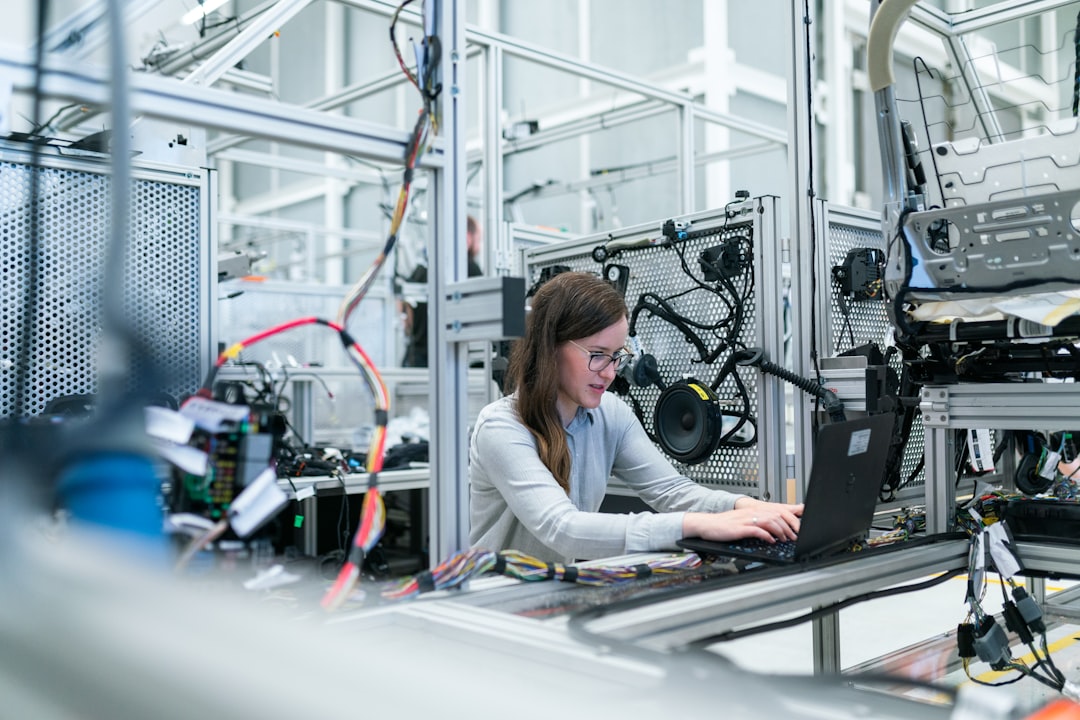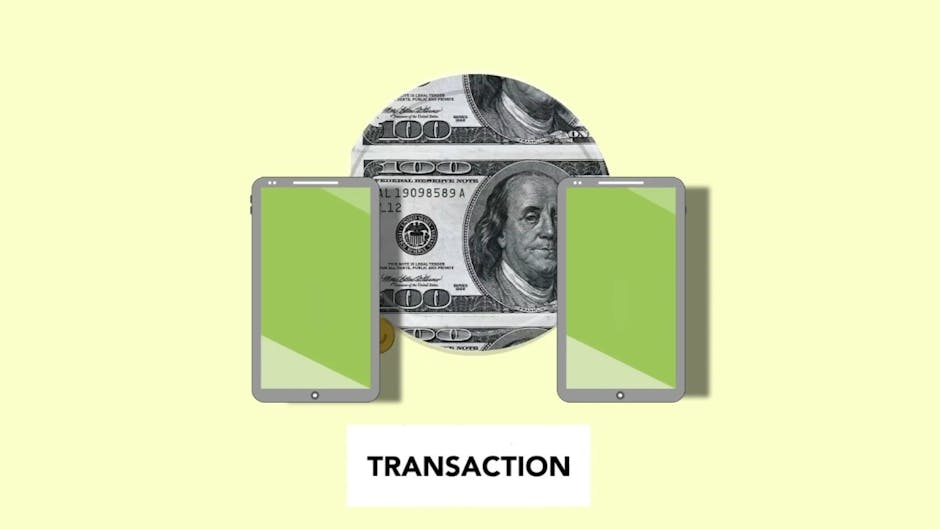Unlock encrypted content
Please enter your SSCE key to initiate on-the-fly decryption.
Decryption key: (Click cancel if you don't have the key)
Copied link to clipboard.
This feature is unavailable for free accounts. Upgrade now and enjoy all Premium benefits.
Go Premium!
This feature is unavailable for free accounts. Upgrade now and enjoy all Premium benefits.
Go Premium!
Please open this page in browser ( Google Chrome or Safari ) to use this feature.
Open In Browser
Secure Data Sharing: The Key to Remote Access and Data Privacy
Random related video for this blog.
Copied share link to clipboard.
Whether it's personal information, business data, or even the data generated by self-driving cars, protecting it from unauthorized access and ensuring its secure sharing has become a critical challenge. This article explores various technologies and approaches that address these concerns, including secure file sharing, genetic algorithms, scalable storage, and the emerging field of neuralink and the Internet of Things (IoT) data storage.
Secure Data Sharing
Secure data sharing refers to the process of exchanging information while ensuring its confidentiality, integrity, and availability. It involves implementing robust encryption mechanisms, access controls, and secure communication protocols to safeguard data during transit and at rest. Organizations and individuals alike are increasingly adopting secure data sharing practices to protect sensitive information from cyber threats and unauthorized access. One such technology that enables secure data sharing is FileLu, a cloud storage provider that offers end-to-end encryption file sharing capabilities. With FileLu, users can securely upload and share files, ensuring that only authorized individuals can access them. The encryption ensures that even if the data is intercepted during transit or stored on the cloud, it remains unintelligible to unauthorized parties.Remote Access and Data Privacy
Remote access has become an integral part of our lives, allowing us to work, collaborate, and access information from anywhere in the world. However, remote access also poses significant security risks, as it involves transmitting data over untrusted networks and potentially accessing sensitive information from vulnerable devices. To address these concerns, secure remote access solutions have been developed, incorporating encryption, multi-factor authentication, and secure tunneling protocols. By using secure remote access solutions, individuals and organizations can ensure that their data remains private and protected, even when accessed from remote locations or through untrusted networks. These solutions establish a secure connection between the user and the remote system, encrypting all data transmittedbetween them. This ensures that even if the data is intercepted, it remains encrypted and unusable to unauthorized individuals.
Self-Driving Cars and Data Security
Self-driving cars are becoming increasingly prevalent, promising to revolutionize the way we commute and travel. However, with this technological advancement comes the need for robust data security measures. Self-driving cars generate vast amounts of data, including sensor readings, GPS coordinates, and vehicle diagnostics, which need to be securely stored and transmitted. To ensure the security and privacy of self-driving car data, various techniques can be employed. Genetic algorithms, for example, can be used to optimize the encryption and decryption processes, making them more efficient and secure. Additionally, scalable storage solutions can be implemented to handle the massive amounts of data generated by self-driving cars, ensuring its availability and integrity.Neuralink and IoT Data Storage
Neuralink, a company founded by Elon Musk, aims to develop brain-machine interfaces that can connect human brains with computers and other devices. This emerging field has the potential to revolutionize various aspects of our lives, including data storage and sharing. By directly interfacing with the human brain, neuralink can enable seamless and secure data transfer, bypassing the need for traditional input/output devices. Furthermore, the Internet of Things (IoT) has transformed the way we interact with our surroundings, with devices such as smart thermostats, wearable fitness trackers, and home security systems becoming commonplace. These IoT devices generate vast amounts of data that need to be securely stored and transmitted. Secure IoT data storage solutions, such as those offered by FileLu, play a crucial role in ensuring the privacy and integrity of this data. In conclusion, secure data sharing, remote access, and data privacy are essential considerations in today's digital world. Technologies such as secure file sharing, genetic algorithms, scalable storage, neuralink, and IoT data storage offer robust solutions to address these concerns. By adopting these technologies and best practices, individuals and organizations can protect their sensitive information from unauthorized access and ensure its secure sharing. To further enhance data security and privacy, solutions like FileLu provide end-to-end encryption file sharing capabilities, enabling users to securely store, share, and access their data. By embracing these technologies and practices, we can navigate the digital landscape with confidence and peace of mind.Frequently Asked Questions (FAQs)
Question: How does secure data sharing work? Answer:
Secure data sharing involves implementing encryption, access controls, and secure communication protocols to protect data during transit and at rest. Technologies like FileLu offer end-to-end encryption file sharing capabilities, ensuring only authorized individuals can access the data.
Question: What is the role of genetic algorithms in self-driving car data security? Answer:
Genetic algorithms can optimize encryption and decryption processes, making them more secure and efficient. This enhances the security of self-driving car data, protecting it from unauthorized access.
Question: How does neuralink impact data storage and sharing? Answer:
Neuralink enables direct brain-machine interfaces, facilitating seamless and secure data transfer. This bypasses the need for traditional input/output devices and offers new possibilities for data storage and sharing.
Case Studies Case Study 1: Company X Implements Secure Data Sharing Solution Company X, a global financial institution, recently implemented a secure data sharing solution to protect its sensitive customer information. By adopting FileLu's end-to-end encryption file sharing capabilities, the company can securely share confidential documents with its clients and partners. This has significantly enhanced data security and privacy, ensuring compliance with regulatory requirements and building trust with stakeholders. Case Study 2: Self-Driving Car Manufacturer Enhances Data Security A leading self-driving car manufacturer has implemented advanced data security measures to protect the vast amount of data generated by its vehicles. By leveraging genetic algorithms and scalable storage solutions, the company ensures that the data remains secure and accessible. This has not only safeguarded sensitive information but also enhanced the overall reliability and performance of their self-driving car technology. Case Study 3: IoT Data Storage Solution for Smart Homes A smart home solutions provider has integrated FileLu's secure IoT data storage capabilities into its product offerings. By utilizing FileLu's end-to-end encryption file sharing and scalable storage solutions, the company ensures that the data generated by its smart home devices remains private and secure. This has boosted customer confidence and enabled the seamless sharing of data between devices, enhancing the overall user experience. By Amelia Isabella
Email: [email protected]
Related
Reputable Project Management Software: Enhancing Efficiency and Collaboration in the...
July 4, 2023
Read More
<h1>Remote Access and Secure Data Collaboration: Exploring the Benefits of...
July 4, 2023
Read More
Wearable Technology: Revolutionizing Data Storage and File Transfer in the...
July 5, 2023
Read More
Brain-Machine Interfaces: Revolutionizing Nanomedicine and Real-Time File Collaboration
July 5, 2023
Read More
Popular
Latest
The Future of Digital Transformation: Exploring Smart Homes, Efficient File...
November 30, 2025
Read More
Exploring the Benefits of Cloud Storage and Innovative Technologies in...
November 26, 2025
Read More
The Future of Technology: Exploring Biohacking, Space Tourism, and Digital...
November 23, 2025
Read More
The Future of File Sharing: Streamlined Workflows for Photographers and...
November 19, 2025
Read More
Exploring the Intersection of Technology: From Cybersecurity to Augmented Reality...
November 16, 2025
Read More
The Future of File Management: Embracing Edge Computing and Efficient...
November 12, 2025
Read More
The Future of File Sharing: Exploring User-Friendly Solutions and Data...
November 5, 2025
Read More
The Future of Cloud Storage: How FileLu Empowers Creative Professionals...
November 2, 2025
Read More
The Future of Autonomous Technologies: Innovations in Robotics, File Sharing,...
October 29, 2025
Read More
Emerging Technologies Revolutionizing File Management: From Li-Fi to Robust Collaboration...
October 26, 2025
Read More
Emerging Technologies: Exploring the Impact of File Access Auditing, Genetic...
October 19, 2025
Read More
The Future of Data Storage: Exploring Advanced Encryption, Mobile Integration,...
October 5, 2025
Read More
Exploring the Future of Data Management: Security, Efficiency, and Cognitive...
September 28, 2025
Read More
Revolutionizing Data Management: Innovations in Storage, Security, and Sustainable Technology.
September 24, 2025
Read More

















